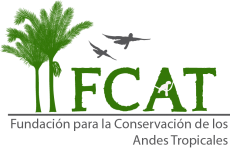Fall 2018
The cold weather has arrived in New Orleans and to stay warm all members of the lab have been keeping busy!
This semester we welcomed Ph.D. students Annelise Blanchette and Mike Ellis to the lab! Annelise comes to us from John Carroll University in Cleveland, OH, where she earned her M.S. in biology. She will be working on mockingbirds here in New Orleans, with a focus on how environmental lead may impact behavior. She is happy to escape the cold winters of the north! Mike has come back to the states from Ecuador where he works as the Director of Research for Third Millennium Alliance, a conservation non-profit. His research will be based in Ecuador and focus on avian diversity in fragmented landscapes.
We also welcomed M.S. students Rachel Cook, Akhila Gopal, Jiawen Liu, and A.J. Pate and senior undergraduate Kyu Min Huh.
We are excited to have so many new faces in the lab, and for all of the exciting research ideas being pursued.
The returning members of the lab have been very busy the past couple of months.
Zoë Diaz-Martin is continuing to work on completing her lab work and data analysis related to adaptation and gene flow in a Neotropical palm tree, Oenocarpus bataua. She submitted her first chapter for publication and presented that work at the Ecological Society of America’s 2018 conference in New Orleans. Complementing her basic research, she continues to work on a community-based conservation initiative supporting local residents in creating an eco-tourism reserve at the Refugio del Gavilan in northwestern Ecuador.
John Jones returned from Papua New Guinea after successfully completing two different experiments as part of his dissertation. He is spending most of the fall semester writing grants to continue to fund his next steps in PNG as well as in Australia. John also co-authored a publication the effect of soil-based lead in New Orleans on northern mockingbird aggression.
Sarah Khalil successfully completed her second year, presenting her work linking circulating carotenoids to plumage phenotype at the American Ornithological Society (AOS) conferences in April. She was also awarded the AOS Hesse Research Award to support her work. This summer, she travelled back to her field site in Australia for her second field season, while concurrently leading this year’s crew of 6 NSF IRES undergraduates. While in Australia, she presented at the Queensland Ornithological Conference in June and at the national conferences for the Australian Society for the Study of Animal Behavior. She is now back in New Orleans, spending most of her time writing and mentoring students in the lab.
Kaushik Narasimhan had an exciting field season in Ecuador field testing GPS tracking devices. This semester he has pivoted from studying seed dispersal to focusing on the mechanisms behind survival advantage of rare genotypic individuals of neotropical tree species. He is gearing up for a big field season next semester to conduct an experiment testing for rare genotypic survival advantage across multiple species. He is also spearheading a frugivory camera trapping project, which is proceeding quickly and has resulted in two grants being awarded to undergraduate participants. He has two papers in review from his master’s research into Amazonian bat community ecology.
Jordan Karubian received grants from the Disney Conservation Fund for conservation work in Ecuador with FCAT, the lab’s partner in-country NGO, and from the RESTORE Center of Excellence program for work on brown pelican ecology with Paul Leberg. He has published new articles in New Phytolo gist (with lab alum Luke Browne, Browne and Karubian 2018), Behavioral Ecology (with lab alum Erik Enbody, Enbody et al. 2018); Molecular Ecology (one with lab alum Luke Browne, Browne and Karubian 2018 and Browne et al. 2018), Neotropical Ornithology (with honors student Michael Mahoney and other lab members, Mahoney et al. 2018), PLoS One (Rivero-de Aguilar et al. 2018), Austral Ecology (with NSF IRES undergraduate students, Sommer et al. 2018), and Science of the Total Environment (with Stephanie McClelland and lab members, McClelland et al. 2018).
Read More


